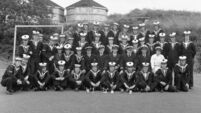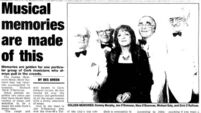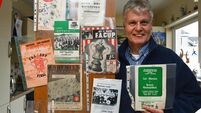"The heels were blown off my shoes... the stockings were blown off my legs..."
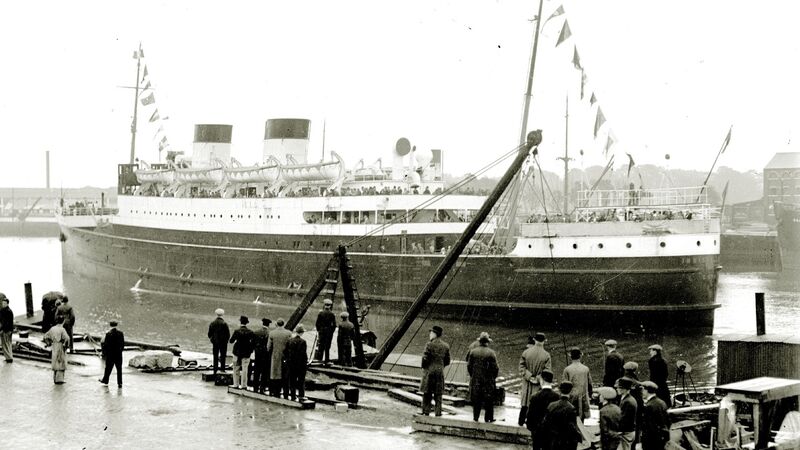
The Innisfallen in 1938 - it was hit by the mine two years later
IT was Christmas week in 1940 and I was one of the lucky emigrants going home from England to enjoy the season with my family in Cork.
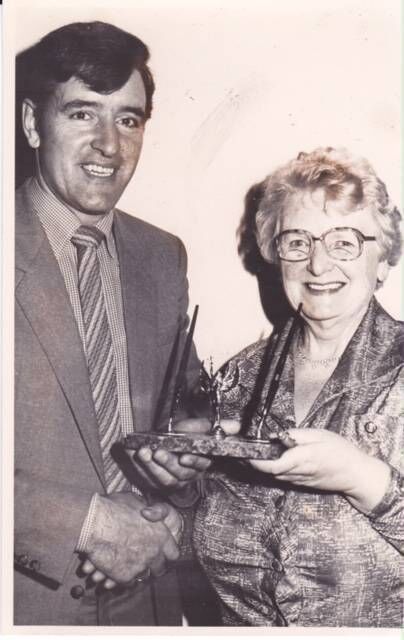
Some passengers lived in Liverpool and wanted to go home at once, and we all wanted to get away from the quayside because we knew there was almost sure to be a second night’s bombing — there usually was in a blitz.
However, bureaucracy ruled, and the quayside officials refused to let us move — we had gone through Emigration so were technically on Irish soil and could not go into Liverpool until the Emigration Officer passed us back in again.
He had hardly finished talking when the air raid sirens sounded and enemy planes appeared overhead. We were rushed to the air raid shelters and the bombing began again. From the shelters, we could see the other side of the river with flames 20 or 30 feet high and buildings collapsing.
We stayed there until 3am, when the bombing stopped and the planes left. We were then told there was a ship at the quayside, provisioned for passengers, and we could spend the rest of the night there. The next morning, senior B&I officials. told us we could have train tickets to anywhere in England, but would not give even sixpence in cash to anyone — not even the train fare to those living in Liverpool.
I was so glad I had insisted on retrieving my handbag. Those few of us who had managed to keep our bags gave some money to the stranded Liverpudlians. I was given a rail ticket back to West Hartlepool — continuing to Ireland was out of the question The first city after leaving Liverpool was Manchester and, when our train stopped there, I thought I would stay the night in the Railway Hotel. However, when I tried to get up, I could not move from exhaustion and bruises, so I sank back in the seat.
The train continued to Leeds, where we all had to get off as it was not going any further. I didn’t mind as I had friends in the city. I went to Leeds Railway Hotel and rang my friends. One came and, on seeing how awful I looked, rang a doctor, who gave me a strong drug to put me to sleep.
(That night, Manchester was bombed and destroyed the hotel where I would have been staying).
The next morning, I continued on to West Hartlepool and went to stay with friends there. It was Christmas Eve.
After a few days, when offices reopened after the holiday, I booked to go to Ireland via Holyhead. I was very worried about my family as wartime restrictions had made it impossible for me to contact them and I thought they must be frightfully worried when I failed to turn up in Cork.
As it happened, no mention was made in the Irish papers of the Liverpool blitz and it was some time before the news reached West Hartlepool. When I told people there why I was back, they looked at me peculiarly. They did not like to call me a liar, but they thought I was making it up because they had heard nothing and could not believe they would not have done so.
****** Maureen Curtis Black went on to live an extraordinary life (see panel above). After a career as a teacher in England, she returned to Cork a widow and dedicated herself to fighting for women’s rights and social justice.
Her work led to her becoming the first Cork woman to receive the Freedom of the City, in 1993.
Maureen’s niece Anne Curtis, who sent her aunt’s remarkable account to the Holly Bough, said: “Like many Irishmen and women living and working in wartime England, Maureen never spoke of her ordeal.
“Our family only learnt about what she had gone through when a handwritten account of this experience was found as we were clearing out her papers after her death in 1999.” ****** PS: By a bizarre twist of fate, the captain of the Innisfallen that night in 1940, Waterford-born widower George Firth, had on board his teenage daughter Maura, who was returning home from boarding school in England for Christmas At the end of the 1940s, Maura married Paddy Hooper — a cousin of Maureen’s.

